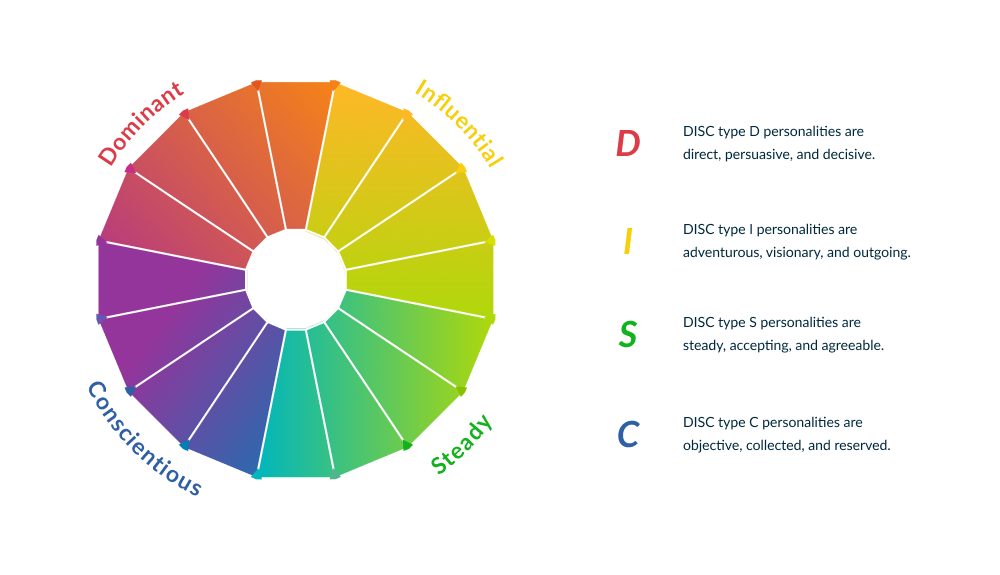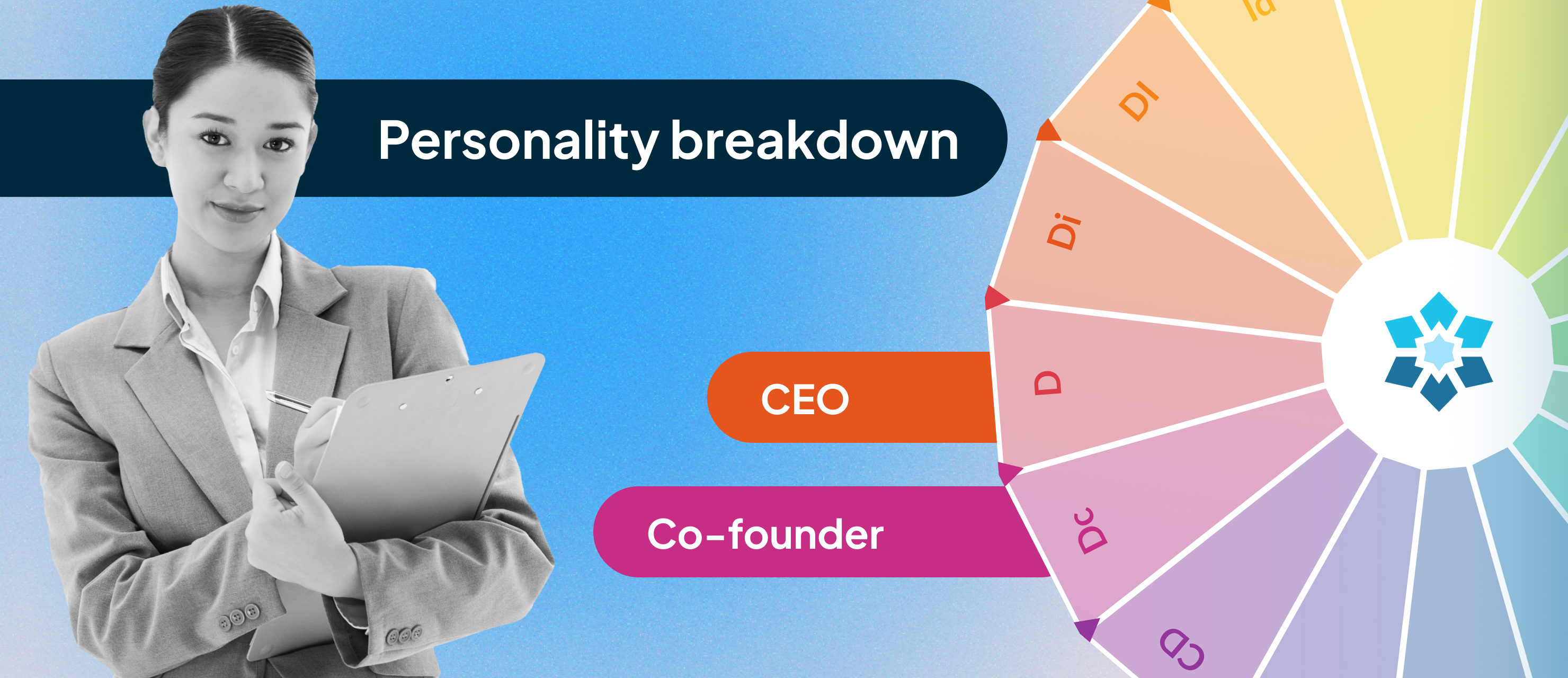
Today’s oversaturated market presents various challenges for sales professionals. Often, it can be difficult to stand out from the crowd, grab the attention of buyers, and build rapport with prospects.
These roadblocks can be felt far beyond the individual sales rep, and an entire organization can suffer if its sales strategy isn’t effective. Although many techniques and strategies can improve a sales organization, to break through the noise, salespeople must be able to adapt each interaction with buyers to align with how they naturally behave, communicate, and make decisions. Personalization is the key to improving sales efficiency, communication, and more opportunities.
This is why an adaptive selling strategy is valuable in today’s market.
What is adaptive selling?
Adaptive selling is the concept of adapting the way sales teams interact with a lead based on their unique personality and behavioral characteristics. Rather than a generic, one-size-fits-all approach, adaptive selling enables B2B sellers to adjust their sales strategy to better suit the person they are selling to.
For example, an assertive, direct salesperson might need to change how they communicate with a more soft-spoken buyer and risk-averse buyer. Rather than jumping into the sale, the seller should focus on building a rapport first to establish trust. When pitching their product, they might need to provide more details and give the buyer more time before making their decision instead then pushing them towards a quick sale. This behavior-based approach helps sales reps tailor their message and selling process to meet each buyer's needs and preferences, taking personalization to the next level.
An adaptive selling approach can significantly improve a seller’s performance and ability to connect with buyers. This approach is meant to evolve depending on the sales situation and with different buyers– as no two people are exactly alike. Being mindful of how individuals are motivated, their behavioral tendencies, and buying process can be especially impactful when navigating the sales stages.
How does it work?
While a buyer’s personality can be guessed based on the seller’s perception of the buyer, utilizing personality frameworks such as DISC can help predict these characteristics, especially if you’ve never connected with your buyer. With Crystal, sales reps can use DISC to easily put adaptive selling techniques into practice with their prospects and customers.
The DISC framework identifies and classifies personalities into a few categories that we refer to as D (dominant), I (imaginative), S (stabilizing), and C (conscientious). These different personality types are unique in their motivations, behaviors, and communication preferences. By understanding where a prospect or customer falls within the DISC framework, sellers can use that information to tailor their sales approach and implement an adaptive selling strategy.
Here is a breakdown of the different personalities:
Let’s take a closer look at how adaptive selling can elevate each step of the sales process…
During cold outreach
The first 5 minutes of any sales call are crucial. You'll start your pitch off on the right foot by making a good impression through effective, attentive communication.
|
D types |
I types |
S types |
C types |
|
|
Do |
|
|
|
|
|
Don’t |
|
|
|
|
When scheduling meetings
By communicating in a way that reaches the other person, sellers can avoid spending unnecessary time and energy on countless, ineffective scheduling attempts.
|
D types |
I types |
S types |
C types |
|
|
Do |
|
|
|
|
|
Don’t |
|
|
|
|
For pitching the product
Salespeople who understand their prospects can easily gear their pitch toward the desires and motivations of their prospect to make it more convincing, effective, and compelling.
|
D types |
I types |
S types |
C types |
|
When pitching to more dominant, assertive D-types, it’s important to focus on conveying the competitive advantages of an offer. Keep your pitch clear and concise while reacting quickly to any feedback. |
Energetic, enthusiastic I-types appreciate more expressive, lighthearted conversations. They can be fun to do a demo for because of their frequent positivity. They’re likely to engage with ideas that are new and innovative. Focus on building excitement about your product and the deeper meaning behind it before getting into any financial discussion. |
If your prospect is a supportive, caring S-type, they usually appreciate when you highlight security and stability in a pitch. It’s important to establish a personal connection with them by asking about them, sharing personal stories, and encouraging them to offer feedback. Avoid pushing them to make a quick decision. |
Inquisitive, data-driven C-types appreciate a thorough, evidence-supported discussion. Be sure to let them know what to expect beforehand and honor their scheduled time. Use specific, clear language and be prepared to answer their questions. |
When discussing price
By addressing the cost conversation in a way that helps each individual prospect fully understand what price they’re paying, how they’re paying, and when, you can help everyone avoid a lot of unnecessary stress.
|
D types |
I types |
S types |
C types |
|
Direct D-types usually consider pricing high-priority when considering a product or service. They tend to prefer discussing it early on in the conversation. Be forth-coming with them; offer them your bottom-line price and avoid sugar-coating it. |
When presenting pricing to an I-type, make sure to share what others are paying. I-types are people-oriented and are likely to feel more comfortable investing in a product that is trusted and enjoyed by other people. Avoid overwhelming them with numbers, and specific data. |
Prospects who are more security-oriented S-types tend to prefer discussing financial aspects of a product after a personal connection has already been established; make sure they feel comfortable before sharing cost. Then, focus on how your company will ensure their purchase is worthwhile. Be sure to mention available warranties or extended service agreements without pressuring them to make rushed decisions. |
If your prospect is a C-type, they will likely want to discuss all specific information surrounding price. Be prepared to support your cost breakdown with data and logical, justifiable reasoning. |
When handling objections
Being prepared to address objections in a way that caters to the needs of different buyer personalities will help you craft the best response during this critical step.
|
D types |
I types |
S types |
C types |
|
Because D-types tend to be straight-forward and assertive, they are likely to share concerns about things like control over administering it, flexibility in the contract, and hidden costs in the long-term. Be prepared to confidently offer solutions to their objections: allow them to have some control over the implementation of the product and be direct about contract flexibility and overall, complete price breakdown. |
Prospects who are I-types may be concerned with missing features of the product, its influence on the product roadmap, and a lack of social proof. You can help navigate these problems by remaining optimistic, sharing compelling stories about other clients, and relating your product to a growing social trend. |
Thorough S-types want to be sure they’re making the right decision; they might raise concerns about your company not being big enough or the product not having enough case studies and positive, proven data. Help relieve their worries by allowing them to fully share their concerns, offering specific evidence of your product’s capabilities, and giving them time to consider their options. |
When pitching to a C-type, they may raise concerns about the security of the product, the ease of rolling it out or administering it, or the overall cost breakdown. You should be prepared to address these problems thoroughly; focus on building a plan to easily introduce or implement the product and bringing in outside data to support the company’s security and pricing model. |
How adaptive selling elevates a sales organization
An adaptive selling strategy can elevate an entire sales organization because its’ benefits are felt by all parties involved – whether as a sales rep, manager, or executive. Here are some ways adaptive selling can elevate an entire sales organization:
Improved conversion & win rates
Adaptive selling can ensure higher conversions across the many stages of the selling process resulting in more wins. By abandoning a generalized approach and opting for personalization, sales reps can form stronger connections and build trust with buyers. Doing so helps buyers and sellers work together and in alignment to identify the best solution. Everyone wants to feel understood and listened to, especially during a sale. By adapting their approach to best suit the individual buyer, sellers ensure that each individual’s needs are being met and their concerns are being addressed– making them more likely to see the value in their solution.
Consistent buyer experience
Organizations that employ adaptive selling move away from treating clients as transactions– a numbers game that annoys most buyers. Because it encourages a consultative approach where sellers communicate empathetically and prioritize building trust, adaptive selling leaves a positive impression on buyers. Ultimately, a consistently positive buyer experience is critical for a sales organization’s success and growth because it instills the element of trust– which is crucial to close any sale.
Maximized time and effort
With less time wasted on miscommunication, time and efficiency are maximized both with sellers and customers. With an adaptive selling approach, salespeople can more quickly dive into the meat of the conversation instead of exchanging pleasantries because they have a good sense of the buyer’s needs, pain, and preferences. Adaptive selling also allows managers to spend less time reviewing communications and more time managing closable deals– making for much more efficient use of their time.
More effective coaching
Adaptive selling is a mindset that can be used outside of sales and in managerial conversations. Personality insights can shed light on how sales reps prefer to work, communicate, meet, and more, facilitating more effective coaching and managerial communication. By understanding how specific personalities naturally behave, managers can motivate and support their team in the way they are most receptive.
Accelerated communication skills
An adaptive selling strategy equips sellers with a deeper understanding of effective communication; these skills are greatly beneficial for the seller and can aid in an acceleration of their own abilities. By practicing communicating in this way, reps can improve communication with their customers and team members, which has benefits throughout their careers and life.
Enabling adaptive selling within the organization
As with any sales strategy, continuous reinforcement is key for adoption. It can be challenging to introduce a new way of thinking, but luckily, tools are available to aid in a more seamless and effective transition.
Crystal, the platform for adaptive selling, is a powerful software to ensure that all reps understand adaptive selling and integrate it into their selling process. Using the DISC personality framework, Crystal enables adaptive selling by offering quick, easy, and effective insights and coaching to guide reps through each sale stage. Integrating adaptive selling techniques is made simple and accessible by utilizing tools like Crystal, ensuring rep adoption and utilization.
Final thoughts
While the vast majority of sales organizations choose a high-volume, low-touch strategy, this has created a massive opportunity for those who take the opposite approach: one focused on quality conversations, building trust, and professional empathy.
This buyer-centered, consultative approach aids in quickly building trust and connecting with buyers– making it a highly successful B2B sales strategy. Organizations employing an adaptive selling approach can differentiate the buying experience by making their pitch more personal, authentic, and relevant than their competition.
Learn more about how Crystal, the adaptive selling platform, can uplevel your current sales strategy:








